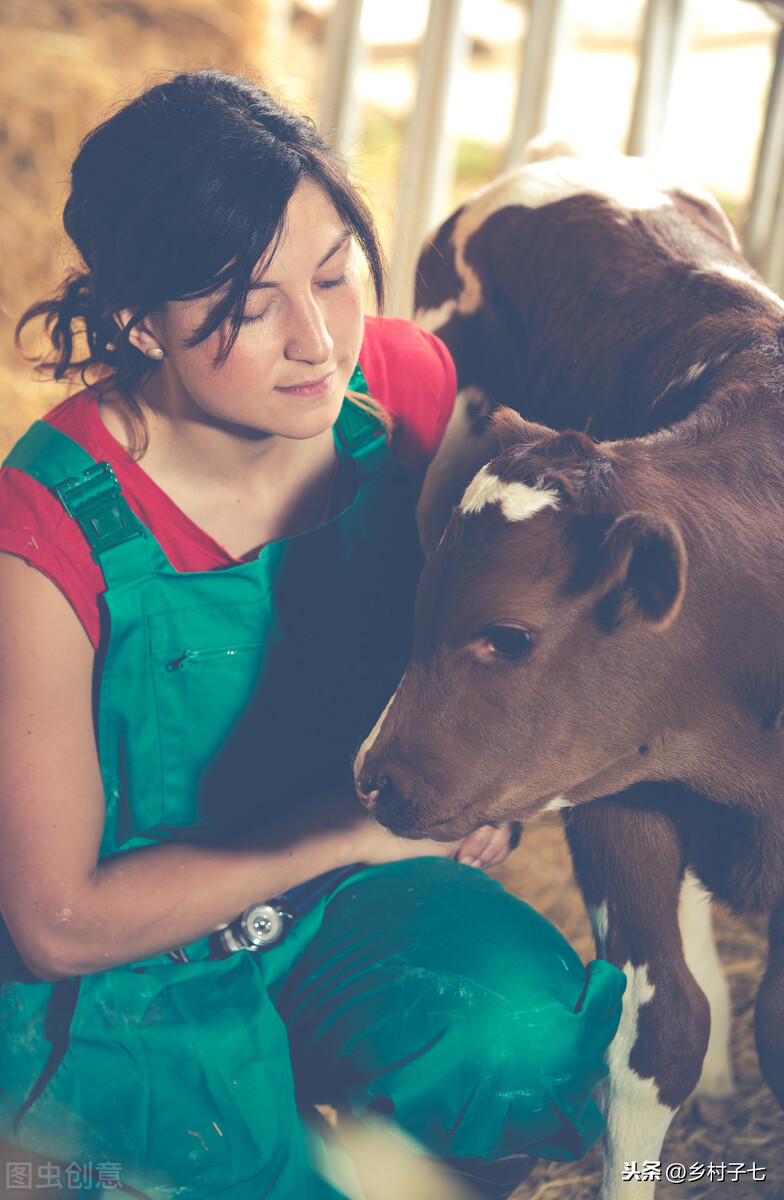
Chicken farmers are very afraid of chicken plague, so as soon as the chicken hatches, it is necessary to drip the chicken new city vaccine for prevention, and at different growth times of the chicken, corresponding preventive measures will be taken. In the practice of cattle raising, many cattle farmers often ignore the epidemic prevention measures for calves, resulting in some irreversible cases and causing losses to farmers.
Calf new ascariasis is a common disease of newborn calves that is more harmful to calves and often causes calf deaths, but can definitely be prevented and avoided early. Although the harm of calf neocariasis is large, it can be avoided by early prevention. Therefore, cattle farmers should develop the habit of controlling calves of new calves.
What is calf neocariasis?
In August, a friend who was a cattle owner called me early in the morning for help: he said that his cow had recently added 3 new calves, and the calves were almost 4 months old. But the calf seems to be very serious, and it does not look happy, has no spirit, and does not like to breastfeed; the milk is enough, and the breasts are swollen, which makes people panic.
After careful observation, I found that the calf was very mentally weak, lying on the ground and not willing to move. The stool was dark red, and when I used a small stick to prepare to pull the feces forward for further observation, a foul smell came over me, at this time, I saw a small calf lying down pulling out a bubble of thin feces, and before I could get to the front, I saw two pale yellow roundworms moving. I tried to pick up a calf again, and the calf was clearly standing unsteadily, shaking and about to fall.
I told my friend that this was the obvious calf disease, which was already more severe, and in a few days, a large number of parasites would block the intestines or cause intestinal perforation and die. Use 1900 mg per head of the enemy worm, use a bottle, first fill the amount of milk or milk powder, and then mix the enemy worm in it, and take it orally at one time. He also instructed that the calf manure be buried deeply. After three days, all three calves returned to normal appetite.
Calf neocariasis often occurs in calves under the age of 4 to 5 months. It is caused by the parasitism of new roundworms in calves in the small intestines of calves; it is a parasitic disease with bovine enteritis, diarrhea, and abdominal pain as significant symptoms. Bovine neocariasis is widely distributed and is more common in the southern region of China. In terms of diagnosis, it can be judged as calf new ascariasis mainly based on symptoms of diarrhea, bloody stool, weakness of sick cattle, and the presence of eggs or insect bodies in the feces.
Preventive deworming is the main measure for the effective control of calf neocariasis. In general, calves are most susceptible to infection when they are 15 to 30 days old, and in many cases, there are a large number of parasites in the calves but no obvious symptoms.
For the prevention and control of calf neocariasis, generally 15 days before the birth of calves, according to 40 to 50 mg per kilogram of body weight of the enemy hundred insects (about 1600 to 2000 mg per calf), or propithiazole per kilogram of body weight 10 to 20 mg (about 400 to 800 mg per calf), a one-time oral administration, for two consecutive days is appropriate.
In many years of practice, because cattle are a more durable, skin-pumping livestock, generally not easy to get sick, so many cattle breeders do not pay as much attention to epidemic prevention work as chickens and pigs, but often neglect the prevention and control of some epidemics, lose management, and eventually lead to undeserved losses.
I am the seventh son of the village, I will, as always, dedicate my own experience and experience in cattle raising to cattle breeders, and take my own lessons in exchange for the success of friends in raising cattle, so that everyone will take fewer detours on the road of cattle raising. However, due to the limited level, it is inevitable that there will be deviations, and it is hoped that people of insight will encourage them. Welcome to leave more comments below, whether correct or incorrect, Sub-Seven will take the time to reply. With the effect of throwing bricks and attracting jade!
Thanks for reading!